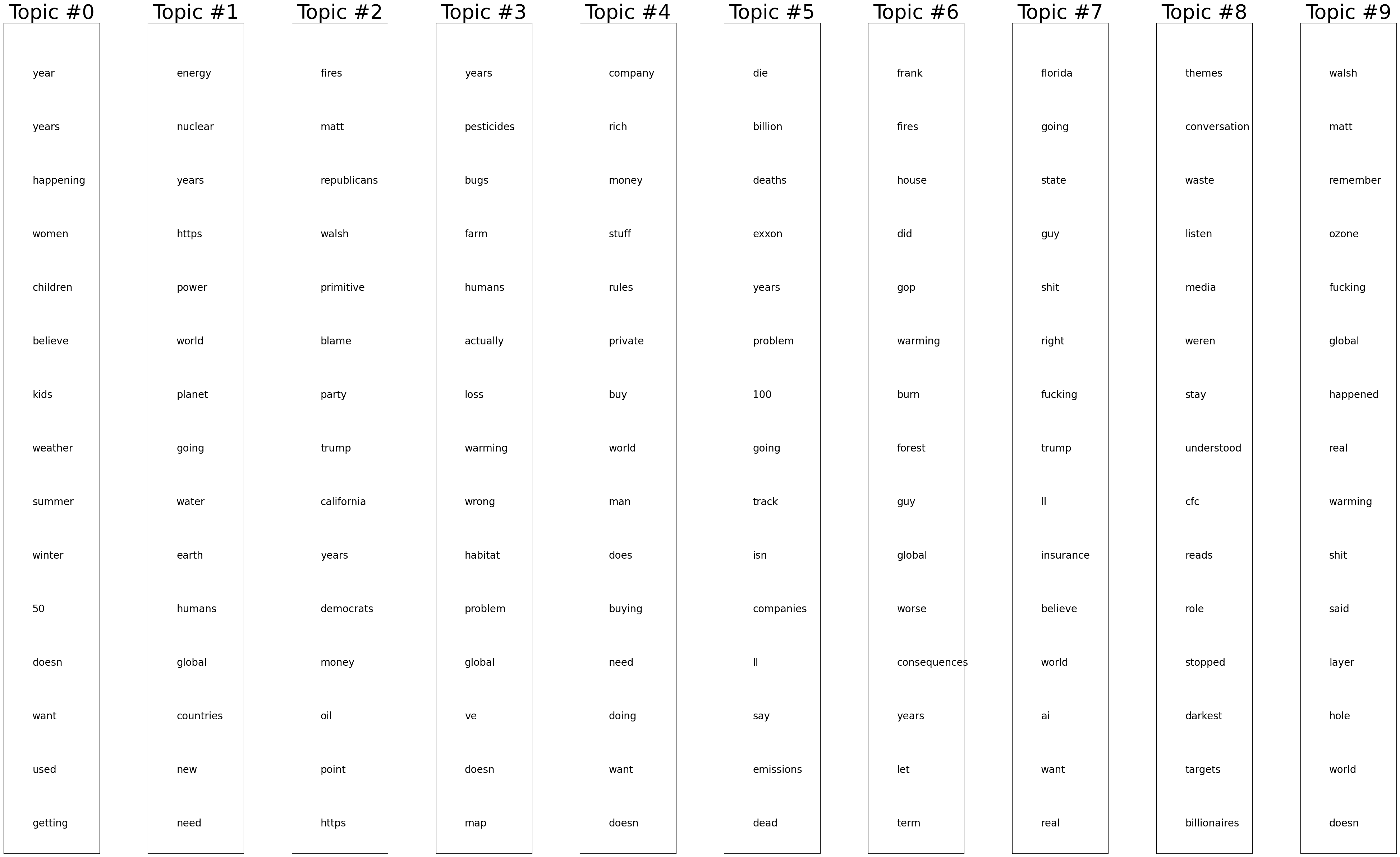Topic 1: Energy, Emissions, and Planetary Risk
Top terms: energy, nuclear, power, years, planet, world, water, earth, co2, civilization
This topic accounted for over 40% of all tokens, showing how central energy debates are to climate discussions. Terms like nuclear and power point to policy-oriented conversations around solutions and tradeoffs, while words like civilization, humans, and co2 suggest an existential framing of climate change.
This reflects public awareness of climate change as not just a scientific challenge, but a global, ethical, and technological one. Posts within this topic often express urgency, long-term thinking, and uncertainty about the future of the planet.




